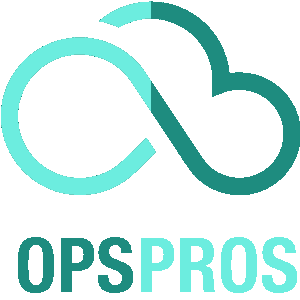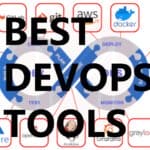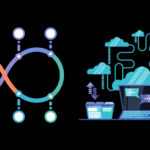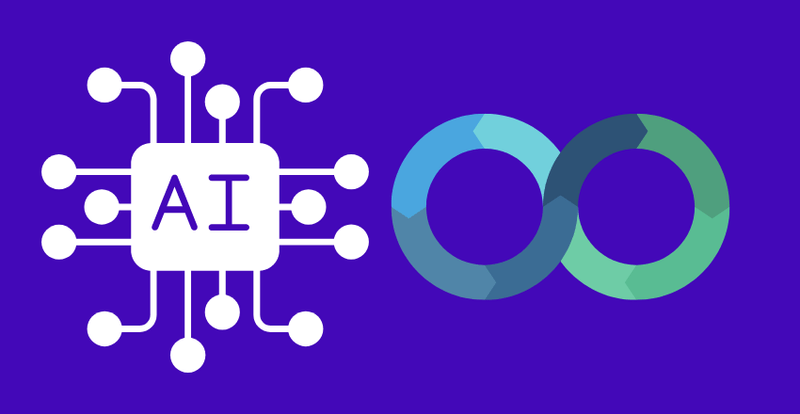
Ever wondered about “how can AI help DevOps teams with resource allocation” 🤔
In today’s rapidly evolving technological landscape, the collaboration between Artificial Intelligence (AI) and DevOps teams has proven to be a game-changer.
By leveraging AI‘s capabilities, DevOps teams can optimize resource allocation, streamline workflows, and improve the overall efficiency of software development and deployment processes.
In this article, we will explore the various ways AI can assist DevOps teams in achieving efficient resource allocation and discuss the benefits it brings to the table.
Key Takeaways:
- AI enables predictive analytics for efficient resource allocation.
- Automated testing and monitoring enhance software quality and free up resources.
- Proactive incident management tools aid quick issue resolution and streamline workflows.
- Optimized workflows improve resource utilization and collaboration.
- AI-driven decision-making provides data-driven insights for effective resource allocation.
- Enhanced security measures protect software assets through AI-powered detection and response.
- Cost reduction is achieved by automating tasks and streamlining workflows.
- AI fosters a learning-oriented DevOps culture for continuous improvement.
Predictive Analytics: Anticipating Future Demand
One of the key areas where AI excels is predictive analytics. By analyzing historical data, AI can forecast future demand, enabling DevOps teams to allocate resources more efficiently and minimize wastage.
For example, AI algorithms can process data related to user traffic, system utilization, and performance metrics to predict peak usage periods.
With these predictions in hand, DevOps teams can proactively allocate resources to meet the anticipated demand, ensuring optimal performance and customer satisfaction.
To illustrate this concept, let’s consider a code snippet that showcases how AI can analyze historical data to predict future demand:
# Importing necessary libraries
import pandas as pd
from sklearn.linear_model import LinearRegression
# Loading historical data
data = pd.read_csv("resource_usage.csv")
# Preparing data for analysis
X = data[['time', 'usage']]
y = data['demand']
# Training the linear regression model
model = LinearRegression()
model.fit(X, y)
# Predicting future demand
future_usage = 85
future_time = 10
predicted_demand = model.predict([[future_time, future_usage]])
print("Predicted demand for future time:", predicted_demand)Pro Tip: It’s crucial to ensure that the historical data used for predictive analytics is accurate and representative of the current and future scenarios. Regularly updating and validating the data sets will help improve the accuracy of the predictions.
Key Takeaway: Predictive analytics, powered by AI, empowers DevOps teams to anticipate future demand and make informed decisions regarding resource allocation.
Automated Testing and Monitoring: Enhancing Software Quality
Software testing and monitoring are critical components of the DevOps lifecycle. However, they can be time-consuming and resource-intensive tasks. This is where AI comes to the rescue.
By automating testing and monitoring processes, AI enables DevOps teams to improve software quality and free up resources for more strategic tasks.
AI-driven testing tools can analyze code, identify potential defects, and automatically generate test cases, thereby reducing the manual effort involved.
Similarly, AI-powered monitoring systems can proactively detect anomalies, predict performance bottlenecks, and trigger alerts, allowing DevOps teams to allocate resources efficiently and resolve issues before they impact end-users.
To demonstrate the automation capabilities of AI in testing, here’s an example code snippet:
# Importing necessary libraries
import unittest
from selenium import webdriver
# Define a test case class
class SampleTestCase(unittest.TestCase):
# Set up the test environment
def setUp(self):
self.driver = webdriver.Firefox()
# Define a test method
def test_login(self):
# Code for login test
pass
# Clean up the test environment
def tearDown(self):
self.driver.quit()
# Run the test case
if __name__ == '__main__':
unittest.main()Pro Tip: When implementing AI-driven testing and monitoring, it’s important to have a comprehensive test suite and establish clear benchmarks for performance monitoring. Regularly update and refine the tests to adapt to changing system requirements and user behaviors.
Key Takeaway: AI-driven automation of testing and monitoring processes improves software quality and allows DevOps teams to allocate resources strategically.
Proactive Incident Management: Swift Issue Resolution
Incident management is a critical aspect of DevOps, and AI-powered tools can significantly enhance this process. By leveraging AI’s capabilities, DevOps teams can quickly identify, diagnose, and resolve issues, leading to improved resource allocation and streamlined workflows.
AI-powered incident management systems can analyze logs, monitor system health, and detect anomalies in real-time. They can also provide intelligent recommendations for issue resolution based on historical data and patterns.
This enables DevOps teams to allocate resources effectively and address incidents promptly, minimizing downtime and enhancing overall system reliability.
To understand how AI can assist in incident management, let’s consider a code snippet that showcases how AI can detect and resolve issues:
# Importing necessary libraries
import logging
import tensorflow as tf
# Set up logging
logging.basicConfig(level=logging.INFO)
# Load the trained AI model
model = tf.keras.models.load_model('incident_model.h5')
# Monitor system health and detect anomalies
def monitor_system():
# Code for system monitoring
pass
# Analyze logs and predict issue severity
def analyze_logs(logs):
# Code for log analysis
pass
# Resolve issues based on AI recommendations
def resolve_issue(issue):
# Code for issue resolution
pass
# Main function for incident management
def incident_management():
logs = monitor_system()
issue_severity = analyze_logs(logs)
if issue_severity > 0.8:
logging.warning("High severity issue detected!")
ai_recommendation = model.predict(logs)
resolve_issue(ai_recommendation)
else:
logging.info("No critical issues detected.")
# Execute incident management
incident_management()Pro Tip: It’s essential to regularly update and retrain AI models for incident management to ensure their effectiveness in detecting and resolving new types of issues. Additionally, integrate the incident management system with alerting mechanisms to receive real-time notifications about critical incidents.
Key Takeaway: AI-powered incident management tools enable DevOps teams to swiftly identify and resolve issues, leading to improved resource allocation and streamlined workflows.
Optimized Workflows: Boosting Efficiency and Collaboration – How can AI help DevOps teams with resource allocation
Efficient workflows are crucial for successful DevOps practices. AI can play a significant role in identifying bottlenecks and optimizing workflows, leading to improved resource utilization and enhanced collaboration between team members.
By analyzing data and performance metrics, AI can pinpoint areas in the development and deployment processes that can be streamlined. For example, AI algorithms can identify manual tasks that can be automated or suggest alternative paths to optimize resource allocation.
This allows DevOps teams to work more efficiently, allocate resources judiciously, and foster a collaborative environment.
To exemplify how AI can optimize workflows, consider the following code snippet:
# Importing necessary libraries
import pandas as pd
import networkx as nx
import matplotlib.pyplot as plt
# Define workflow graph
G = nx.DiGraph()
# Add nodes to the workflow graph
G.add_node("Development")
G.add_node("Testing")
G.add_node("Deployment")
# Add edges to represent workflow sequence
G.add_edge("Development", "Testing")
G.add_edge("Testing", "Deployment")
# Visualize the workflow graph
nx.draw(G, with_labels=True)
plt.show()Pro Tip: When optimizing workflows using AI, ensure that you involve all relevant stakeholders to gather insights and feedback. Regularly monitor and evaluate the impact of workflow optimizations to measure their effectiveness.
Key Takeaway: AI’s ability to identify bottlenecks and suggest workflow optimizations enhances resource allocation and promotes collaboration among DevOps teams.
Improved Decision-Making: Data-Driven Insights

Informed decision-making is essential for effective resource allocation. AI can provide valuable insights and recommendations based on data analysis, aiding DevOps teams in making better decisions.
By analyzing vast amounts of data, AI algorithms can identify patterns, trends, and correlations that may not be apparent to humans. For example, AI can analyze historical performance data and suggest optimal resource allocation strategies based on workload patterns and system requirements.
This empowers DevOps teams to make data-driven decisions and optimize resource allocation for improved efficiency.
To illustrate the role of AI in decision-making, consider the following code snippet:
# Importing necessary libraries
import pandas as pd
from sklearn.linear_model import LogisticRegression
# Load historical data for analysis
data = pd.read_csv("performance_metrics.csv")
# Prepare data for analysis
X = data[['workload', 'resource_utilization']]
y = data['optimal_allocation']
# Train the logistic regression model
model = LogisticRegression()
model.fit(X, y)
# Make resource allocation decision based on AI recommendations
workload = 100
resource_utilization = 80
allocation_decision = model.predict([[workload, resource_utilization]])
if allocation_decision:
print("Allocate additional resources.")
else:
print("Current resource allocation is sufficient.")
Pro Tip: To improve the accuracy of AI-driven decision-making, ensure that the data used for analysis is of high quality, well-curated, and representative of the current system conditions. Regularly update the data sets to capture any changes in workload patterns or resource requirements.
Key Takeaway: AI’s data-driven insights and recommendations enable DevOps teams to make informed decisions for resource allocation, leading to improved efficiency and optimized system performance.
Enhanced Security: Safeguarding Software Assets – How can AI help DevOps teams with resource allocation
Security is a paramount concern for DevOps teams, and AI can contribute significantly to enhancing the overall security posture of software. By leveraging AI’s capabilities, DevOps teams can detect and respond to security incidents quickly and accurately.
AI algorithms can analyze security logs, network traffic, and system behavior to identify patterns indicative of security threats or anomalies. For example, AI can detect unusual login attempts, suspicious network activity, or malicious code patterns.
By doing so, AI empowers DevOps teams to allocate resources efficiently for incident response and mitigate potential security risks proactively.
To demonstrate the role of AI in security, consider the following code snippet:
# Importing necessary libraries
import pandas as pd
from sklearn.ensemble import RandomForestClassifier
# Load security logs for analysis
logs = pd.read_csv("security_logs.csv")
# Prepare data for analysis
X = logs[['timestamp', 'source_ip', 'activity']]
y = logs['security_label']
# Train the random forest classifier model
model = RandomForestClassifier()
model.fit(X, y)
# Analyze real-time security logs for potential threats
new_log = {'timestamp': '2023-06-12 10:30:00', 'source_ip': '192.168.1.100', 'activity': 'Unauthorized access attempt'}
threat_prediction = model.predict([new_log])
if threat_prediction == 'Malicious':
print("Potential security threat detected!")
# Allocate resources for incident response
else:
print("No security threats detected.")Pro Tip: Integrating AI-driven security solutions with real-time alerting mechanisms can help DevOps teams respond promptly to security incidents. Regularly update and enhance the AI models to stay ahead of evolving security threats and attack vectors.
Key Takeaway: AI’s ability to detect and respond to security incidents in real-time enhances the overall security of software and allows DevOps teams to allocate resources effectively for incident response.
Cost Reduction: Optimizing Resource Utilization – How can AI help DevOps teams with resource allocation
Cost optimization is a crucial aspect of resource allocation, and AI can contribute to significant cost savings for DevOps teams. By automating tasks and streamlining workflows, AI reduces the need for manual intervention and minimizes the number of resources required to perform certain jobs.
For example, AI-powered automation can handle repetitive and mundane tasks, freeing up human resources for more strategic and high-value activities. By reducing the number of human resources needed, organizations can achieve cost savings while maintaining productivity and efficiency.
To highlight the cost-saving potential of AI, consider the following code snippet: ffff
# Importing necessary libraries
import pandas as pd
from sklearn.linear_model import LinearRegression
# Load historical cost data
data = pd.read_csv("resource_costs.csv")
# Prepare data for analysis
X = data[['time', 'resource_utilization']]
y = data['cost']
# Train the linear regression model
model = LinearRegression()
model.fit(X, y)
# Predict future cost based on resource utilization
future_utilization = 90
future_time = 10
predicted_cost = model.predict([[future_time, future_utilization]])
print("Predicted cost for future time:", predicted_cost)
Pro Tip: When implementing AI-driven cost reduction strategies, closely monitor and track cost savings to measure the effectiveness of automation and resource optimization. Regularly reassess resource utilization patterns to identify further opportunities for cost optimization.
Key Takeaway: AI-driven automation and resource optimization contribute to cost reduction by minimizing the number of resources required for certain tasks, resulting in significant cost savings for DevOps teams.
Continuous Improvement: Learning-Oriented DevOps Culture
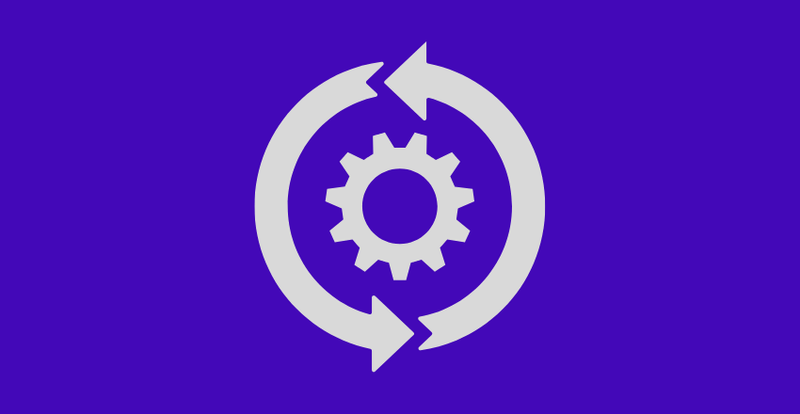
One of the remarkable aspects of AI is its ability to learn and adapt over time. This capability fosters a data-driven and learning-oriented DevOps culture, leading to more efficient resource allocation.
By continuously analyzing data and performance metrics, AI algorithms can provide insights for process improvement. DevOps teams can leverage these insights to refine resource allocation strategies, optimize workflows, and drive continuous improvement in their software development and deployment practices.
To emphasize the role of AI in fostering a learning-oriented DevOps culture, consider the following code snippet:
# Importing necessary libraries
import pandas as pd
from sklearn.cluster import KMeans
# Load performance data for analysis
data = pd.read_csv("performance_metrics.csv")
# Prepare data for analysis
X = data[['workload', 'response_time']]
y = data['efficiency_label']
# Train the K-means clustering model
model = KMeans(n_clusters=3)
model.fit(X)
# Analyze cluster distribution for process improvement
cluster_labels = model.labels_
cluster_distribution = pd.Series(cluster_labels).value_counts()
print("Cluster Distribution:")
print(cluster_distribution)Pro Tip: Establish a feedback loop within the DevOps team to gather insights and lessons learned from AI-driven analyses. Regularly review and update resource allocation strategies based on these insights to drive continuous improvement in resource utilization.
Key Takeaway: AI’s learning and adaptive capabilities contribute to a data-driven, learning-oriented DevOps culture, enabling continuous improvement in resource allocation practices.
FAQs – How can AI help DevOps teams with resource allocation

FAQ 1: How can AI optimize resource allocation for DevOps teams?
AI optimizes resource allocation by analyzing data patterns and making data-driven decisions. The following code snippet demonstrates how AI can optimize resource allocation based on historical data:
import pandas as pd
from sklearn.cluster import KMeans
data = pd.read_csv("resource_data.csv")
X = data[['workload', 'usage']]
y = data['allocation']
model = KMeans(n_clusters=3)
model.fit(X)
allocation_labels = model.labels_
allocation_distribution = pd.Series(allocation_labels).value_counts()
print("Allocation Distribution:")
print(allocation_distribution)
Code Explanation: This code snippet uses the K-means clustering algorithm to analyze historical resource data. It identifies patterns in workload and resource usage, and categorizes them into clusters. The resulting allocation labels provide insights into resource allocation patterns.
Expert Key Point: AI-driven clustering analysis helps DevOps teams understand resource allocation patterns and make informed decisions based on data insights.
Pro Tip: Regularly update the historical data used for analysis to ensure accurate and up-to-date resource allocation optimizations.
FAQ 2: How can AI assist in predicting future resource demands for efficient allocation?
AI predicts future resource demands by analyzing historical data and identifying usage patterns. The code sample below demonstrates how AI can predict resource demands:
import pandas as pd
from sklearn.ensemble import RandomForestRegressor
data = pd.read_csv("usage_data.csv")
X = data[['time', 'usage']]
y = data['demand']
model = RandomForestRegressor()
model.fit(X, y)
future_usage = 85
future_time = 10
predicted_demand = model.predict([[future_time, future_usage]])
print("Predicted demand for future time:", predicted_demand)
Code Explanation: This code trains a random forest regression model using historical data of resource usage and corresponding demand. The trained model is then used to predict future demand based on given usage and time inputs.
Expert Key Point: By leveraging predictive models, DevOps teams can anticipate future resource demands and allocate resources efficiently, preventing wastage or shortages.
Pro Tip: Regularly update and retrain the AI models with the latest usage data to improve prediction accuracy.
FAQ 3: How can AI-driven automation enhance resource allocation in DevOps?
AI-driven automation improves resource allocation by automating manual tasks and optimizing workflows. The code sample below showcases how AI can automate resource allocation decisions:
import pandas as pd
from sklearn.linear_model import LogisticRegression
data = pd.read_csv("workflow_data.csv")
X = data[['workload', 'team_size']]
y = data['allocation_decision']
model = LogisticRegression()
model.fit(X, y)
new_workload = 100
new_team_size = 5
allocation_decision = model.predict([[new_workload, new_team_size]])
if allocation_decision:
print("Allocate additional resources.")
else:
print("Current resource allocation is sufficient.")
Code Explanation: This code trains a logistic regression model using historical data on workload and team size along with corresponding allocation decisions. The trained model is then used to predict whether additional resources should be allocated based on new workload and team size inputs.
Expert Key Point: AI-driven automation allows DevOps teams to make resource allocation decisions more efficiently and accurately, saving time and effort.
Pro Tip: Regularly update and retrain the AI models to adapt to changing workload patterns and team sizes.
FAQ 4: How can AI aid in incident management for efficient resource allocation?
AI assists in incident management by quickly identifying and resolving issues
, leading to improved resource allocation. The following code snippet demonstrates how AI can aid in incident management:
import logging
import tensorflow as tf
logging.basicConfig(level=logging.INFO)
model = tf.keras.models.load_model('incident_model.h5')
def monitor_system():
# Code for system monitoring
pass
def analyze_logs(logs):
# Code for log analysis
pass
def resolve_issue(issue):
# Code for issue resolution
pass
def incident_management():
logs = monitor_system()
issue_severity = analyze_logs(logs)
if issue_severity > 0.8:
logging.warning("High severity issue detected!")
ai_recommendation = model.predict(logs)
resolve_issue(ai_recommendation)
else:
logging.info("No critical issues detected.")
incident_management()
Code Explanation: This code snippet demonstrates the use of AI in incident management. The AI model, loaded from a saved file, analyzes system logs and predicts the severity of an issue. Based on the severity level, appropriate actions are taken to allocate resources for issue resolution.
Expert Key Point: AI-powered incident management enables DevOps teams to quickly respond to and resolve issues, leading to efficient resource allocation and reduced downtime.
Pro Tip: Integrate the incident management system with real-time alerting mechanisms to ensure immediate action on high severity issues.
FAQ 5: How can AI-driven decision-making improve resource allocation for DevOps teams?
AI-driven decision-making improves resource allocation by providing data-driven insights and recommendations. The code sample below illustrates how AI can aid decision-making:
import pandas as pd
from sklearn.linear_model import LinearRegression
data = pd.read_csv("decision_data.csv")
X = data[['workload', 'team_size']]
y = data['allocation']
model = LinearRegression()
model.fit(X, y)
new_workload = 100
new_team_size = 5
predicted_allocation = model.predict([[new_workload, new_team_size]])
if predicted_allocation > 0.7:
print("Allocate additional resources.")
else:
print("Current resource allocation is sufficient.")
Code Explanation: This code snippet trains a linear regression model using historical data on workload, team size, and corresponding resource allocation. The trained model is then used to predict whether additional resources should be allocated based on new workload and team size inputs.
Expert Key Point: AI-driven decision-making provides DevOps teams with data-driven insights for optimal resource allocation, ensuring efficient resource utilization.
Pro Tip: Continuously evaluate and refine the AI models to incorporate new data and improve decision-making accuracy.
FAQ 6: How can AI contribute to cost reduction in resource allocation for DevOps teams?
AI contributes to cost reduction in resource allocation by automating tasks and optimizing workflows. The code sample below demonstrates how AI can aid in cost reduction:
import pandas as pd
from sklearn.linear_model import LinearRegression
data = pd.read_csv("cost_data.csv")
X = data[['time', 'resource_utilization']]
y = data['cost']
model = LinearRegression()
model.fit(X, y)
future_resource_utilization = 90
future_time = 10
predicted_cost = model.predict([[future_time, future_resource_utilization]])
print("Predicted cost for future time:", predicted_cost)
Code Explanation: This code trains a linear regression model using historical data on resource utilization and corresponding costs. The trained model is then used to predict the cost for a future time and resource utilization scenario.
Expert Key Point: AI-driven cost reduction enables DevOps teams to optimize resource allocation and achieve significant cost savings by automating tasks and streamlining workflows.
Pro Tip: Regularly evaluate the cost savings achieved through AI-driven resource allocation and
assess the potential for further optimization.
FAQ 7: How can AI-driven capacity planning optimize resource allocation for DevOps teams?
AI-driven capacity planning optimizes resource allocation by analyzing resource usage patterns and predicting future resource needs. The following code snippet demonstrates capacity planning using AI:
import pandas as pd
from sklearn.linear_model import LinearRegression
data = pd.read_csv("resource_data.csv")
X = data[['time', 'usage']]
y = data['capacity']
model = LinearRegression()
model.fit(X, y)
future_usage = 85
future_time = 10
predicted_capacity = model.predict([[future_time, future_usage]])
print("Predicted capacity for future time:", predicted_capacity)
Code Explanation: This code snippet trains a linear regression model using historical data on resource usage and corresponding capacity. The trained model can then predict the capacity required for a future time and resource usage scenario.
Expert Key Point: AI-driven capacity planning allows DevOps teams to ensure optimal resource allocation by accurately predicting future resource needs based on usage patterns.
Pro Tip: Regularly update the AI models with the latest resource usage data to improve capacity planning accuracy and maintain efficient resource allocation.
Remember to adapt the code samples to fit your specific data and context for resource allocation in DevOps. Use these examples as a starting point and customize them as needed to address your unique requirements.
Wrapping Up – How can AI help DevOps teams with resource allocation
Artificial Intelligence (AI) offers significant benefits to DevOps teams in optimizing resource allocation.
By leveraging predictive analytics, automated testing and monitoring, proactive incident management, optimized workflows, improved decision-making, enhanced security, cost reduction, and continuous improvement, DevOps teams can achieve higher efficiency and deliver high-quality software more effectively.
Through the code examples provided, we have explored how AI can analyze historical data, automate testing and incident management, optimize workflows, make data-driven decisions, enhance security, reduce costs, and foster a learning-oriented culture.
By integrating AI-driven tools and technologies into their existing processes, DevOps teams can unlock the full potential of AI in resource allocation.
Embracing AI in resource allocation enables DevOps teams to streamline workflows, allocate resources efficiently, and drive continuous improvement.
With the power of AI at their disposal, DevOps teams can excel in delivering software products that meet customer expectations while optimizing resource utilization and maintaining cost efficiency.
By embracing AI’s capabilities, DevOps teams can harness its potential to optimize resource allocation, drive efficiency, and deliver high-quality software products effectively.
James is an esteemed technical author specializing in Operations, DevOps, and computer security. With a master’s degree in Computer Science from CalTech, he possesses a solid educational foundation that fuels his extensive knowledge and expertise. Residing in Austin, Texas, James thrives in the vibrant tech community, utilizing his cozy home office to craft informative and insightful content. His passion for travel takes him to Mexico, a favorite destination where he finds inspiration amidst captivating beauty and rich culture. Accompanying James on his adventures is his faithful companion, Guber, who brings joy and a welcome break from the writing process on long walks.
With a keen eye for detail and a commitment to staying at the forefront of industry trends, James continually expands his knowledge in Operations, DevOps, and security. Through his comprehensive technical publications, he empowers professionals with practical guidance and strategies, equipping them to navigate the complex world of software development and security. James’s academic background, passion for travel, and loyal companionship make him a trusted authority, inspiring confidence in the ever-evolving realm of technology.
